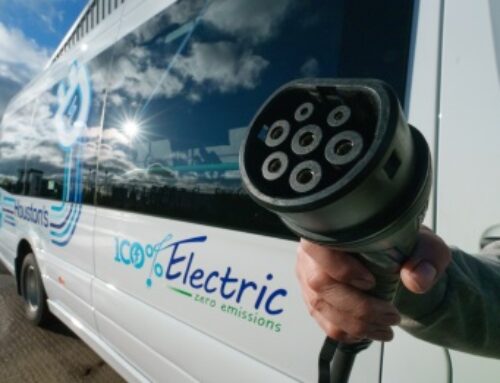AdBlue: friend or foe in the fight against air pollution?
 Marc Haley, director at Alliance Transport Technologies – aftermarket solutions provider for the commercial vehicle industry – discusses the importance of utilising AdBlue correctly
Marc Haley, director at Alliance Transport Technologies – aftermarket solutions provider for the commercial vehicle industry – discusses the importance of utilising AdBlue correctly
The UK is in the midst of a ‘clean air zones’ revolution. Councils across the country are developing and putting into place extensive plans to help reduce air pollution in towns and cities nationwide.
Across the commercial vehicle industry, AdBlue technology is proving to be a key weapon in the war against harmful vehicle emissions. While AdBlue is vital in helping clean air zones become a reality, its highly corrosive properties mean it comes with its own set of challenges for drivers and engineers.
Stringent environmental regulations limit the toxic emissions in exhaust fumes on every new vehicle sold in Europe since September 2015. These rules, alongside the introduction of clean air zones, mean AdBlue is becoming more prevalent. But, is the importance of utilising this substance correctly being overlooked?
Recovery services are seeing rising numbers of breakdowns due to misuse of AdBlue, including AdBlue being poured into the fuel tank.
Vehicles with AdBlue technology have separate filler compartments for the AdBlue tank, usually situated next to the diesel cap or under the bonnet. The solution is injected automatically into the flow of exhaust gases and should never be poured into the fuel tank.
This mistake, which we are seeing more often, can have catastrophic damage to the vehicle’s fuel system. The solution is not compatible with the pipework and components found in the section of a vehicle, and as it’s highly corrosive, can result in highly expensive repair costs.
Another problem we are seeing frequently surrounds crystallisation. AdBlue consists of demineralised water and urea, with the main active component being ammonia. This is chemically formed by hydrolising automotive urea. When the water content in AdBlue evaporates, this leaves the urea crystals.
These can produce a number of problems for fleet drivers. Regular servicing will pick up any minor issues on the systems – such as a leaking dosing pump which could cause crystalisation.
This means the AdBlue is left to eat away at the systems components, pumps, seals, valves and more. On average, we receive over 200 dosing pumps a month that need reconditioning due to damage caused by AdBlue not being administered correctly, and even more new NOx sensors, dosing valves and injectors due to lack of maintenance or misuse.
Spilt AdBlue can cause damage to a vehicle’s bodywork too, so it’s always better to be safe than sorry when topping up – wipe all surfaces after replenishing AdBlue.
If AdBlue is purchased in bulk supply, it needs to be fitted with a self-seal connector. It’s essential this is kept free of crystals, or the valve mechanism can become jammed opened and air will be pumped into the tank.
Any AdBlue distribution systems installed by operators or managers should avoid air pockets, where crystallisation can take place. Any build-up of crystals around a filling nozzle should also be wiped off with a rag soaked in de-ionised water.
In addition to this, contamination of AdBlue can be a major concern to operators. Using contaminated AdBlue can cause costly damage to a vehicle’s SCR – selective catalytic reduction – system. This means it’s imperative to protect AdBlue against any contaminants including dirt, oil, fuel, water and dust and not to store it in direct sunlight as UV radiation is harmful.
We have also seen a rise in the number of vehicles reporting engine performance problems, unaware this may be due to continuing to drive without topping up AdBlue levels, even with a warning light on the dashboard. In some cases, commercial vehicles that are fully Euro 6 compliant may stop all together if they run out of AdBlue, leaving the engine unable to start until the tank is refilled.
In light of the clean air zones and councils across the UK striving to reduce emissions, AdBlue is definitely a step in the right direction. The revolutionary system means more and more vehicles are complying to these strict regulations, which makes for a brighter future for commercial vehicle manufacturers.
The importance of using AdBlue correctly cannot be disregarded, the consequences can be costly for fleet managers and operators from both time and monetary perspectives, and in an industry where time is money – potential damage could be detrimental to a business especially when misdiagnosed.
As experts in this field, we have seen fleet operators fall foul of misdiagnosis. It’s always best to seek specialist help in this area.











